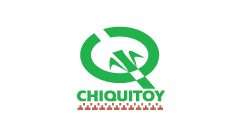
HISTORY
![]()
A great force over time
Since the beginning this Trujillian estate has always remained in the hands of Peruvians. In 1868 Italian scholar Antonio Raimondi was so impressed by it that he mentioned it in his book El Perú as "remarkable for its luxuriously furnished beautiful house," kept to this day.
Until the sixteenth century, Chiquitoy was an "Indian village" and the few that were left ended up reduced to Santiago de Cao town. Even in the early decades of the seventeenth century, don Juan PayPaynamo, head chief of the people of Chiquitoy, was recognized as a fairly prominent character in the Chicama Valley.
In 1654, the owner of the Chiquitoy estate was Maria Valverde, who then passed it on to her son Valentin del Risco y Valverde, who by 1689 owned the hacienda Trapiche, named Santo Domingo de Chiquitoy.
At the time of his death the estate passed on to his son Valentin del Risco y Montejo, who in turn sold it to his son Valentin del Risco y Alvarado. In 1763 Chiquitoy produced seven thousand sugar pounds per year and 400 oil pounds out of its extensive olive harvest.
Later on, the sole heir of the Cartavio and Chiquitoy estates was Josefa del Risco y Oyague, who died unmarried, having appointed Joseph Mercedes Vigo, Archdeacon of the Cathedral, as trustee and heir of her estate.
In May 1857 the Lambayeque independence hero, Juan Manuel Iturregui y Aguilarte, bought the estate Chiquitoy. In 1872, one year after his death, his widow leased it to the brothers Andrés and Rafael Larco Bruno, who built the sugar factory and an alcohol distillery.
In 1901 Victor Larco Herrera took over Negociación Azucarera Chiquitoy (Chiquitoy Sugar Negotiation), building the railway line that linked the factory to Huanchaco port, where he built a dock for the shipment of its products. As a result of the strike of 1912 the factory of Chiquitoy was closed.
In 1916 Susana de Orbegoso, widow of Iturregui, leased the estate to her brother Luis José Orbegoso y González, who with the help of his two eldest sons founded the “Negociación Agrícola Chiquitoy” (Chiquitoy Agricultural Negotiation), enlarging the estate and increasing their cane fields to more than two thousand hectares.
Upon the death of Doña Susana, in 1959, her daughter Susana Iturregui y Orbegoso, condesa de Potocki, inherited the estate, and she kept the property until its expropriation by the Agrarian Reform Law.
After the lands became part of a cooperative regime and later turned into a limited company in 1999, the Rubini group acquired 85% of the shareholding, which to date is entirely in the hands of Cartavio SA and FODINSA, shareholders who are currently managing the company.